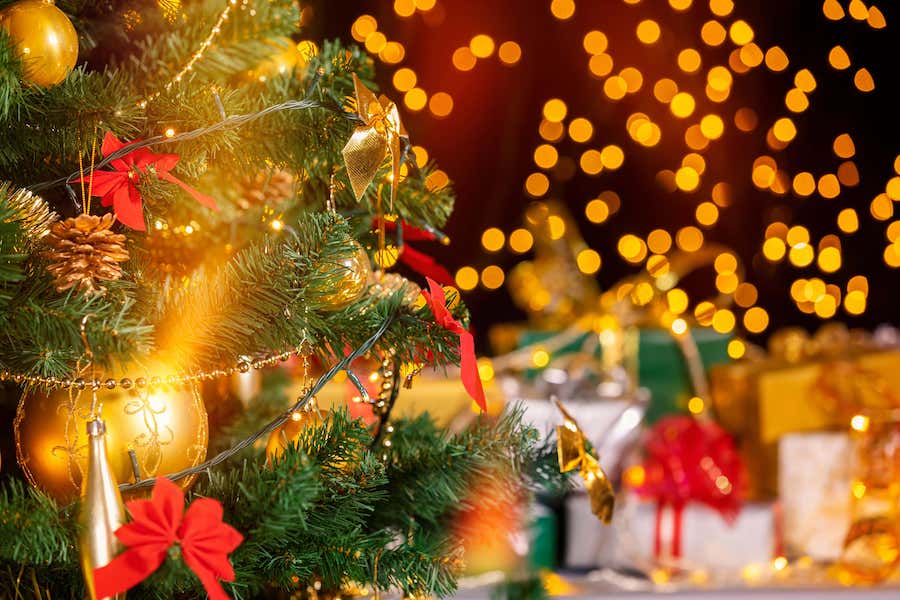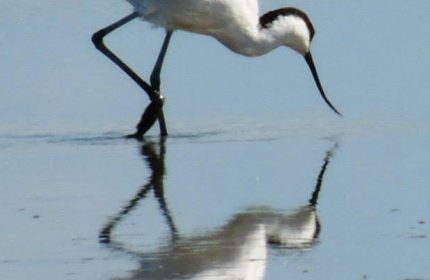8 hidden festive fire hazards to watch out for this season
Fire and accident experts tell us about festive dangers we should all be wary of.
When you think of Christmas, presents, decorations, and fun probably spring to mind much quicker than fire hazards.
But the reality is that Christmas is a very risky time for fires – Direct Line Insurance say there’s a 12% spike in fire service callouts on Christmas Day compared to the monthly average. And in every day in December sees an average of 734 fires.
And what’s more, new data from Admiral Home Insurance has found December is the most damaging month for domestic fires, with average claims costing around £5,000 more than the rest of the year.
“Sadly, fires are a real risk at this time of year,” warns Elizabeth Lumsden, community safety manager at RoSPA, which helps people recognise and reduce the risk of accidents.
“Christmas can provide many exciting distractions, meaning safety isn’t always the first thing on your mind,” Lumsden points out. “However, with a little forethought and planning you can ensure the home will be a safe place for children and adults alike over the festive period. Enjoy the festivities, keeping you and your loved ones safe at this time of year by taking that little extra time to think about fire safety.”
Here are the main festive fire culprits to know about.
1. Faulty or broken fairy lights
Lumsden suggests you check the fairy lights draped on your tree, as they can be a fire risk if they’ve been broken since last Christmas. LED lights are a safer option than incandescent lights, as they don’t need heat to create light, so are less likely to ignite any flammable Christmas decoratons.
“Carefully consider if you need a new set of Christmas tree lights this year and always check for any bulbs that have blown, replacing them immediately,” advises Lumsden.
While a National Fire Chiefs Council (NFCC) spokesperson adds: “Don’t use [lights] if you notice damage such as frayed wires. Remember to switch off Christmas lights and unplug them before you go to bed or leave the house.
Householders should check lights conform to the British Standard (BS EN 60598).

2. Not concentrating in the kitchen
Most fires start in the kitchen and one of the most common causes is getting distracted while cooking, according to the NFCC. Never leave cooking unattended and always turn off kitchen appliances when you’ve finished cooking.
And even though it’s Christmas, try to lay off the booze if you’re cooking dinner.
3. Candles
Although real fluttering flames can help give a Christmassy feel to your home, it’s much safer – and pretty realistic – to use LED candles instead.
Lumsden says: “There’s no need for real flames these days with the availability of lovely LED candles that can be used instead, But if you do use real candles, make sure they’re placed well away from the tree and other decorations, including Christmas cards.”
And the NFCC says to never leave burning candles unattended. “Keep candles out of the reach of children, and away from decorations, cards and wrapping paper, fires, lights, and heaters.”
View this post on Instagram
4. Overloaded electrical sockets
Overloaded electrical sockets or extension leads can be a fire hazard, and Lumsden recommends T-bar adaptors with surge protectors as the safest to use when plugging in the tree lights with additional appliances and electrical toys over Christmas. “But switch them off and unplug during the night or when you leave the house,” she warns.
The NFCC say that while it’s tempting to use four-way bar adaptors to increase the number of appliances you can plug into a wall socket, it’s vital to check you’re not exceeding the rating on the extension lead, and you should never plug one extension lead into another.
5. Smoking guests
Even if you and your family might be non-smokers, some of your Christmas guests may light up. Lumsden suggests: “If there are any smokers visiting, advise them to only do so outside but check they haven’t left any lighters or matches lying around where children might be able to reach them.”
6. Poorly placed decorations
The NFCC stresses decorations can burn easily, so it’s important to make sure they’ve been put up safely away from lights, heaters, and fires. In addition, don’t let decorations, gifts, or Christmas clutter block escape routes – they should be kept clear in case you need to escape a fire.
7. Electrical gifts
Check electrical gifts you buy or receive are safe, advises the NFCC. You can do this by always buying from reputable retailers, looking for CE marks (showing they meet safety standards), ensuring you have the correct charger for the device, and following the manufacturer’s instructions on charging safely.
View this post on Instagram
8. Broken smoke alarms
The NFCC advises homeowners to have at least one smoke alarm on each level of the home and test them once a month to make sure they work. If you don’t have smoke alarms or need advice, do an Online Home Fire Safety Check.
In addition, check you have enough batteries in before Christmas Day, so you’re not tempted to nick some from your smoke alarm if you run out. Lumsden says: “Test your smoke alarm systems before the big day and never be tempted to remove batteries to put in the new toys that have arrived.”
The Press Association
Latest posts by The Press Association (see all)
- The Princess of Wales pays tribute to the late Queen in burgundy ensemble for Qatar state visit - December 3, 2024
- Give your garden wildlife some home-made Christmas treats - December 2, 2024
- What is surgery prehabilitation and why is it important? As Joe Wicks launches get ‘fit for surgery’ videos for elderly - November 30, 2024
- How to manage your arthritis in the cold weather - November 30, 2024
- How to help a child through grief - November 28, 2024





















